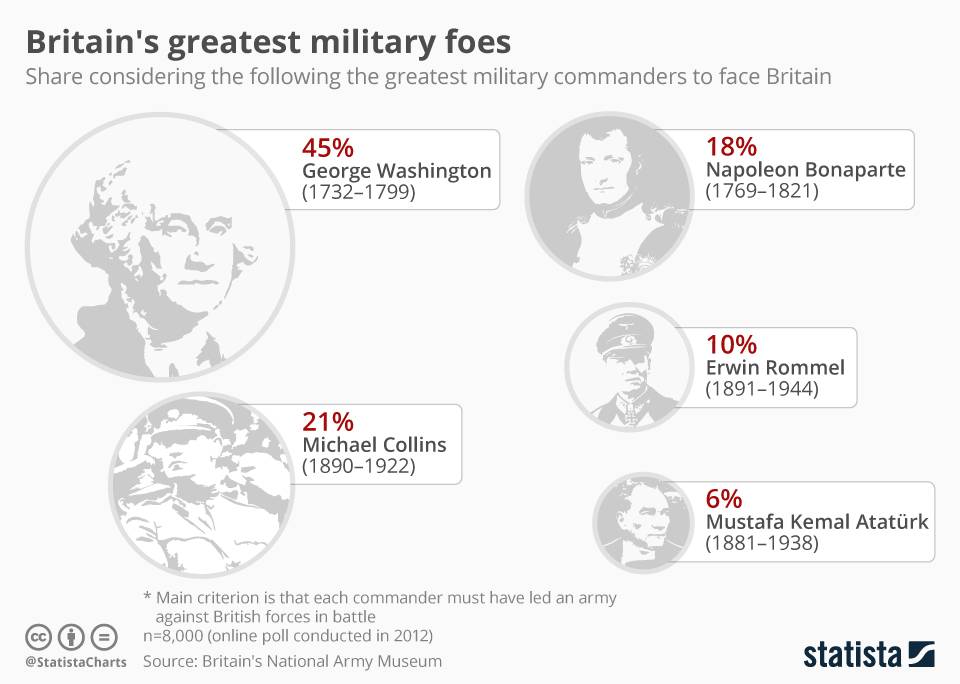JimBowie1958
Old Fogey
- Sep 25, 2011
- 63,590
- 16,753
- 2,220
George Washington was one of the most brilliant generals to have ever founded a nation.
Earlier in the 1780s, Washington had been approached twice by the officers who promised their support if he decided to seize civilian power. In one famous incident in 1782, Col. Lewis Nicola wrote a letter urging Washington to overthrow Congress and become America's king.
The commanding general scolded Nicola the very same day.
Then in 1783, Washington caught wind of officers wanting to stage a coup d'état against Congress. The so-called Newburgh Conspirators were frustrated that Congress was not paying them what had been promised when the nation desperately needed their sacrifice. Washington would not be moved. On the Ides of March -- a date rich in irony for its association with the tyranny and assassination of Julius Caesar -- he called the men together and sternly reprimanded them for losing faith in the idea of America.
The new nation had a chance to succeed only if its leaders and military adhered to the rule of law. This was the non-negotiable foundation of a free republic.
When King George III heard Washington would resign his commission to a powerless Congress, he told the painter Benjamin West: "If he does that, he will be the greatest man in the world."
Washington returned home to Mount Vernon on Christmas Eve 1783. Like Cincinnatus, he put down his sword and took up his plow. This simple act made him the most trusted man in America.
A few years later, delegates to the Constitutional Convention of 1787 selected him to preside over their gathering, knowing he would not abuse his position to aggrandize himself. And a grateful nation unanimously elected him president of the United States in 1789 and again in 1792, because they knew he would devote all his energies to serving the new nation.
Washington, when convinced that he had done all he could to help the country, retired after two terms as president. True to principle, he relinquished the power that was his for the taking. It was an example of service to the republic, to the res publica, to our valued public things as anation. George Washington's example of selfless leadership would inspire Americans and the world to this day.





